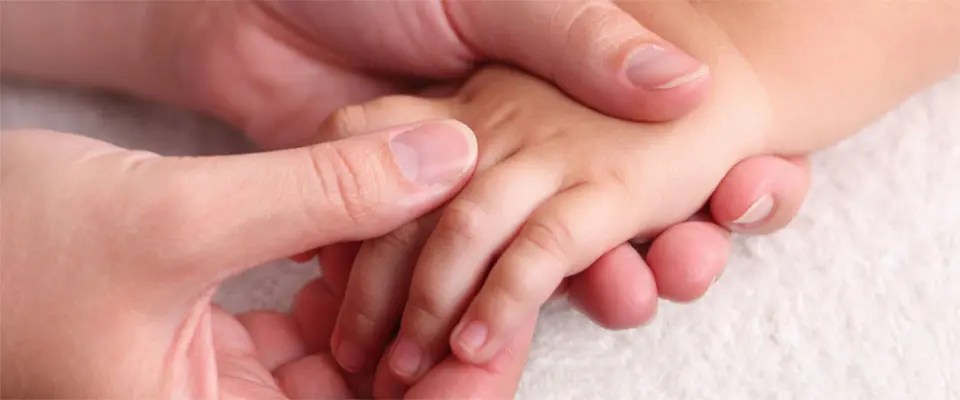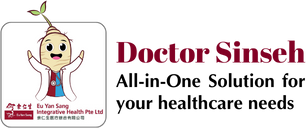
When Ms Rachel Chan was preparing her 5-year-old for an operation to refine an earlier procedure for his cleft palate, she reached for the best that medicine had to offer – from the East and the West.
On her sister’s advice, Ms Chan sought the opinion of a Traditional Chinese Medicine (TCM) practitioner, who had qualifications in both the Biomedical Sciences and TCM. The practitioner concurred that the child had environmental allergies, and also found that “the qi of his endogenous lungs was weak and needed strengthening,” says the 34-year-old stay-at-home mum.
The physician prescribed herbs – among them bamboo and mulberry leaves, and chrysanthemum and honeysuckle flowers – which Ms Chan brewed into a drink for her son to help fight bacteria and reduce inflammation. She also started him on tui na to help him cough up his phlegm more effectively. Two weeks later, the boy’s cough had improved, and she moved him on to a nourishing brew of wild American ginseng and dendrobium stem to prepare him for surgery. Ms Chan also made TCM a part of his post-operation recovery plan.
Today, she continues to include TCM in managing her son’s general wellness. “When he falls sick, he recovers faster and stays well for longer,” she says.
Similarly, stay-at-home mum Brenda Tan wanted a form of treatment that targeted the root of her then six-year-old daughter’s persistent and recurring eczema. She found a “non-steroidal” cure in TCM. Besides oral herbal medication, Ms Tan received herbs for her daughter’s bath and a topical cream for the affected areas. “I was also given a list of food items that my daughter was to avoid,” she adds.
Treatment continued for about a year, and “the eczema never came back”.
Total wellness
Ms Chan and Ms Tan are among a growing number of parents exploring – and embracing – TCM as a complement to conventional Western medicine, says Eu Yan Sang physician Anita Pee.
By 2015, TCM practitioners at Eu Yan Sang Integrative Health in Singapore were managing over 13,000 children aged 12 years and below a year. This age group, which formed 15 per cent of the Group’s patients, represented an increase of more than 40 per cent over 2011.
Most parents are drawn by TCM’s holistic nature and its emphasis on total mind and body wellness, as well as the role it can play in preventing disease, boosting a child’s immunity, and enhancing growth and development, explains Ms Pee.
“TCM is natural, with minimal side effects,” she says. “And it manages the root causes of diseases and conditions.”
Because their bodies are inherently immature, children are susceptible to illnesses, particularly those that affect the lungs and the spleen. That is why for children, TCM’s focus is on shoring up immunity and vitality, or ‘qi’.
“When using TCM to bolster the child’s immunity, we focus on building up the ‘qi’ in these organs through TCM herbs, paediatric tuina and by advising (caregivers) on the right diet for the child,” says Ms Pee.
When considering TCM for their children, many parents also wonder where it might fit into a child’s existing wellness and medical regime.
That was at the top of Ms Chan’s list of questions.
“I was concerned that the TCM practitioner would ignore Western fundamentals of diagnosis and medicine… but I was reassured after I received practical advice from my physician, who also gives her young children TCM herbs,” she says. This included tips on diet and getting adequate sleep.
Ms Tan was pleased to find that her TCM physician was fully bilingual in English and Chinese, as many practitioners are these days. She had been worried that a language barrier would affect her ability to understand and follow through with her daughter’s treatment plan.
Not miniature adults
What is important when incorporating TCM into a child’s health regime is to remember that children are not miniature adults. Children are less mature both physically and functionally, Ms Neo says. To ensure safety and efficacy, they should not be given herbal medication prescribed for an adult, even in smaller doses.
The type of herbs prescribed and their dosage depend on the child’s condition, age and weight, she says, citing a case where two brothers, just a year apart and presenting similar symptoms, needed different herbs and dosages.
She also cautions that TCM is not always the answer, for example, in cases when a child is experiencing acute symptoms, such as high fever, vomiting and convulsions. These should be managed at a hospital, as should conditions like suspected appendicitis and fractures.
Parents must additionally be aware of the different TCM therapies, and the age at which they are appropriate.
Generally speaking, the best age to start herbal treatments is six months, or after the child has begun eating solids, Ms Pee says. Herbs that can affect hormonal development are only prescribed after adolescence.
Another common and effective TCM therapy for young children is paediatric tui na. This is very different from the adult version, and can benefit children as young as six months old. “This technique enhances a child’s energy flow by massaging various acupoints that are specific to children,” Ms Pee says.
Treatments like acupuncture and cupping are generally not recommended before adolescence. There are, however, some exceptions. These are decided by trained physicians on a case-by-case basis, says Ms Pee.
What is suitable and when
TCM herbs, paediatric tui na
Infants: From six months to 1 year old
Toddlers: Between 1 and 3 years old.
Preschoolers: Between 3 and 7 years old.
TCM herbs, regular tui na
School-age children: 7 years old to pre-puberty.
TCM herbs, regular tui na, acupuncture, cupping
Adolescents/teenagers: Puberty to 18 years old for girls and 20 years old for boys.
The right TCM partner
With TCM being increasingly accepted as a viable form of treatment worldwide, authorities in several countries have taken steps to regulate practitioners in the TCM sector. This provides a starting point as to who you can trust with your child’s health, says Ms Pee.
In Singapore, for instance, trained TCM practitioners are licensed by the Ministry of Health’s Traditional Chinese Medicine Practitioners Board. In Europe, there are regulations in several countries including Austria, where a TCM practitioner must also be a medical doctor, and Switzerland, where the practice of TCM is regulated by federal law1.
This is reassuring for parents like Ms Chan and Ms Tan who have chosen to make TCM a part of their children’s wellness regime, even as they continue to consult with regular pediatricians.
“My son still falls sick like any regular child and we still consult a pediatrician. But with TCM, the symptoms are a lot more manageable,” says Ms Chan.
What is suitable and when
Good lifestyle habits should also be practiced. These include getting adequate sleep, having moderate exposure to cold weather to “build up the child’s resistance to external pathogens”, and catching some sun to “help boost yang qi, which is important for a child’s development”.
This holistic approach to strengthening immunity is something Ms Ling appreciates – although it took some effort on her part as well.
“When we first started TCM, my daughter had trouble taking the herbs, but now it’s no longer an issue,” she says. “And happily, she doesn’t fall sick so frequently anymore.”





